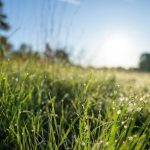What Are the Best Balanced Nutrition Foods for Muscle Growth
Building muscle is a goal for many fitness enthusiasts, whether they’re seasoned athletes or newcomers to the gym. Achieving this objective requires more than just rigorous training; it hinges on a well-rounded diet that fuels muscle repair and growth. While protein often takes center stage in conversations about muscle gain, understanding the full spectrum of balanced nutrition is crucial. Let’s explore the best foods that provide a harmonious blend of nutrients to support your muscle-building journey.
Quality Protein Sources
When it comes to muscle growth, protein is paramount. It serves as the building block for muscle tissue and aids in recovery post-workout. Lean meats like chicken, turkey, and lean cuts of beef are exceptional choices due to their high protein content and low fat. Fish, especially fatty types like salmon and tuna, not only deliver protein but also provide omega-3 fatty acids, which can reduce inflammation and promote recovery.
For those who prefer plant-based options, beans, lentils, and chickpeas are excellent sources of protein. They are versatile and can be incorporated into various dishes, from salads to stews. Additionally, quinoa is a complete protein, meaning it contains all nine essential amino acids, making it a fantastic choice for both vegetarians and meat-eaters alike.
Healthy Fats for Hormonal Support
Healthy fats play a crucial role in muscle growth and overall health. They support hormone production, including testosterone, which is vital for muscle development. Incorporating sources like avocados, nuts, seeds, and olive oil into your diet can provide the necessary fats without excessive calories.
Fatty fish, such as mackerel and sardines, are not only rich in protein but also in omega-3 fatty acids, which promote heart health and reduce muscle soreness. Including these fats in your meals adds flavor and texture while ensuring you’re meeting your nutritional needs.
Complex Carbohydrates for Energy
While protein and fats are vital, carbohydrates are the body’s primary energy source, especially during high-intensity workouts. Opting for complex carbohydrates can provide a steady release of energy. Whole grains like brown rice, oats, and whole grain bread are excellent choices. These foods are packed with fiber, which aids in digestion and helps maintain stable energy levels throughout the day.
Fruits and vegetables are equally important. They not only provide essential vitamins and minerals but also serve as a source of simple carbohydrates that can replenish glycogen stores after a workout. Bananas, sweet potatoes, and berries are particularly beneficial for athletes due to their quick digestibility and nutrient density.
Hydration Matters
While not a food, hydration is a critical component of muscle growth. Water supports every metabolic function in the body, including nutrient transportation and muscle repair. Dehydration can hinder performance and recovery, making it essential to drink ample fluids throughout the day. Aim for at least 2-3 liters, adjusting based on your activity level and climate.
For added electrolytes, consider incorporating coconut water or sports drinks post-workout. They can help replenish lost minerals and maintain hydration, ensuring your body is primed for recovery and growth.
Timing Your Nutritional Intake
The timing of your nutrition can significantly impact muscle growth. Consuming a balanced meal or snack containing protein and carbohydrates within 30 minutes to two hours after a workout can enhance recovery. This is when your muscles are most receptive to nutrients, helping to repair and grow. Foods like a protein shake with banana or Greek yogurt with berries can be perfect options post-exercise.
Strategically planning your meals throughout the day ensures that your body has a continual supply of nutrients, supporting sustained energy levels and optimal recovery.
Nourishing Your Body for Success
Building muscle is a multifaceted process that requires dedication both in the gym and at the dining table. By focusing on a balanced diet rich in quality proteins, healthy fats, complex carbohydrates, and staying hydrated, you create an environment conducive to muscle growth. Remember that consistency is key; fuel your body thoughtfully, and you will see the results of your hard work reflected in your strength and physique.


